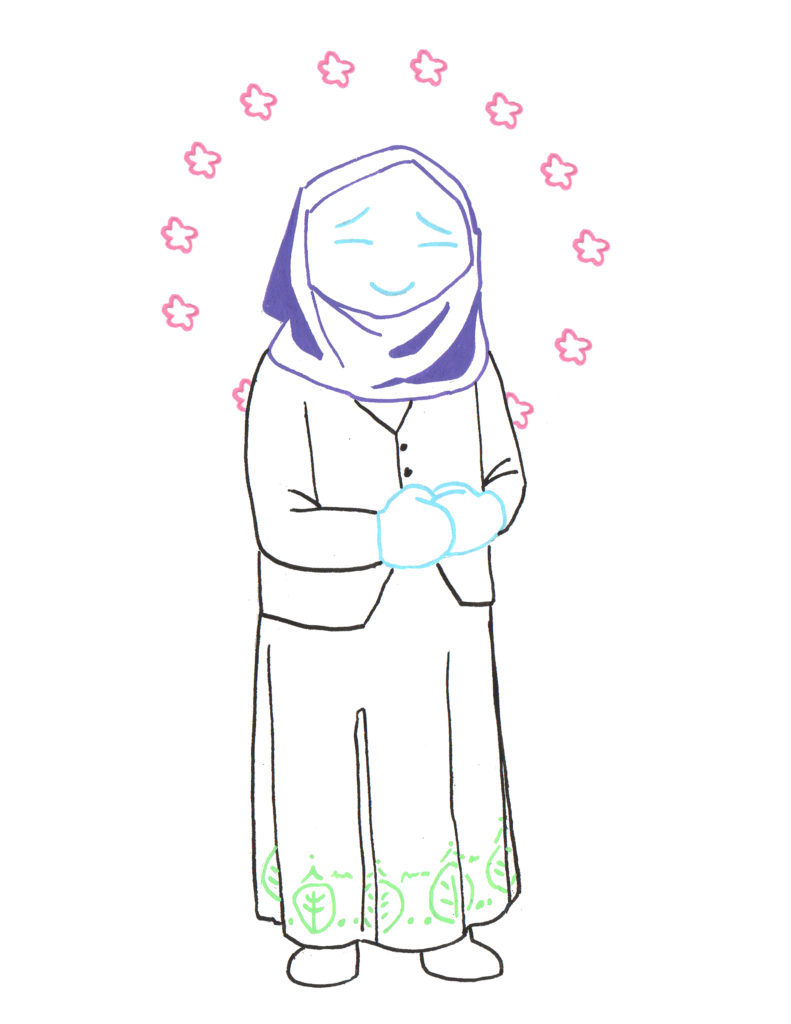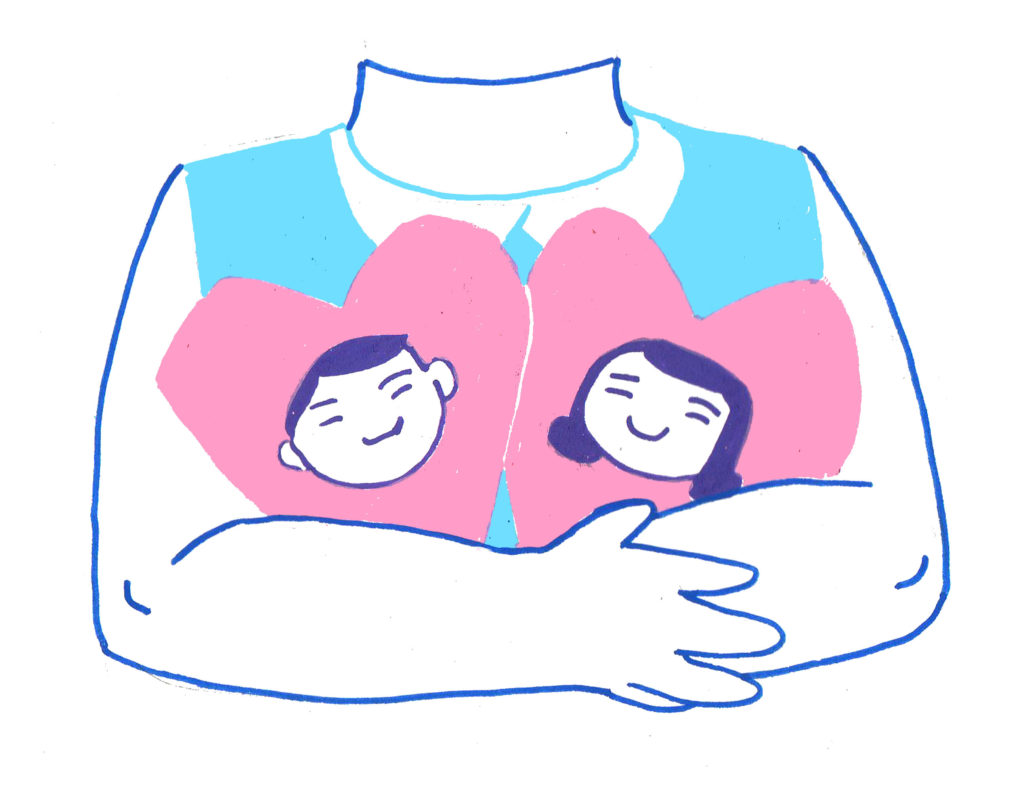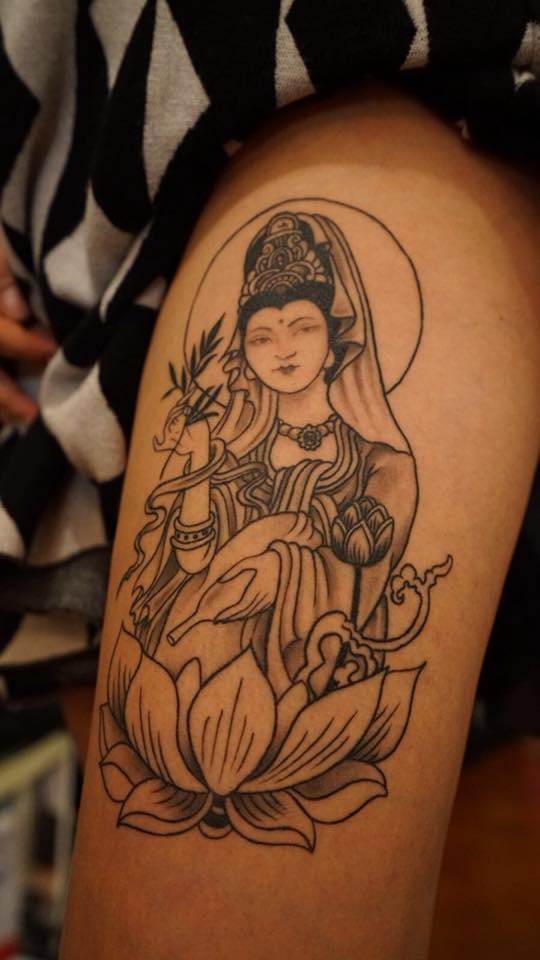*** This post is a part of a series. To get caught up, check out “The Secrets of Nikah, the Islamic Wedding Ceremony, Part I”

“This is not part of the deal,” I shouted, shaking my head. The pins keeping my lavender headscarf in place pricked my scalp. “You promised that I didn’t have to convert if I go through the nikah!” I glared at him; my gaze was accusatory.
“I’m sorry I didn’t know,” Gökhan muttered, “You don’t need to go through with it if you don’t want to. It’s completely up to you.”
Is it up to me? No, it’s not up to me! I started to cry. Gökhan looked at me with his thoughtful eyes. He handed me a tissue. I dabbed my eyes, blew my nose, and continued to sit on the bed and cry. I looked up and saw myself in his mother’s vanity mirror. My make-up had smeared, my lavender headscarf had fallen off, and my face looked like the damp, soggy tissue in my hand. Gökhan fidgeted next to me, occasionally patting me on the shoulder and repeating the phrase, “You don’t have to do this if you don’t want to.”
Don’t you fucking understand? I shouted inside my head. From now on, we can never be truly happy together. If I don’t convert, your Mom is going to hate me forever, and I am going to feel lousy making you choose between her and me. However, if I do convert, I will resent you for as long as I live. I kept my head bowed because I couldn’t stand looking at the helpless expression on his face. I couldn’t utter a word because I knew that if I tried to verbalize what I was thinking, I would either start wailing or screaming.

If I had known what I know now, I would have walked away—a marriage cannot be built on coercion and compromised integrity. Part of our attraction to each other was the fact that we came from such different worlds, which was intoxicating to explore. Also, I was his ticket out of Denmark and his parents’ house. For me, I liked that he added a layer to my multi-cultural experience and the idea of an exotic boyfriend who had grown up in completely different cultures than mine. I bragged to friends that between the two of us, there are four passports. I have spent my whole life crossing borders and adapting to different cultures, and I thought I was ready to cross a new one with Gökhan.
I was wrong.
I wept for an eternity, shed enough tears to fill the Bosphorous. On the other side of the door, the imam was waiting for me to change my wicked, wayward ways and his entire clan was expecting us to profess our undying love and commitment to each other. I cried and cried. I didn’t know how to get out of this mess.
Out of nowhere, Gökhan’s father walked into the room. He was smiling. He closed the door behind him and started laughing. I gave him a look of bafflement as he spoke rapidly in Turkish. He paused and nodded his head. Gökhan looked at me and interpreted what his father had said, “My dad said you are taking this whole thing way too seriously.”
His father grinned at me, said a few more words and nodded again. Gökhan translated, “He said it’s totally fine if you don’t want to go through with it. But you could also put on a show by pretending to convert, which would make everybody happy.”
I stared at his father, shocked that he had just asked me to go out there and tell a lie in front of the whole family. It’s not that I hadn’t thought of it myself, but it felt inconceivable to make a roomful of people believe I was something that I wasn’t. He chuckled, nodded at Gökhan again and left without saying another word. What his father wanted me to do was what he had done, and also what Gökhan had done his whole life: pretend and go through the motions to make peace. I felt defeated and exhausted. I forced my gaze back to Gökhan. Oh, what I would do just to make this awful situation go away!
After taking a couple of deep breaths, I asked Gökhan to fetch my makeup bag from the next room. I cleaned my face with a fresh tissue and wiped away the black smudge under my eyes. When Gökhan returned, I smeared a thick layer of foundation and powdered my face. Then, I applied a sparkly lilac eyeshadow that matched my lavender headscarf. Staring at my reflection in the mirror, I grinned. I readjusted my headscarf. My eyes were still puffy; my smile looked pathetic but convincing enough to those who didn’t know me. I smiled again and knew that my mask was secure. I reached for Gökhan’s hand and led him out of the room.
** To find out what happens next, read the final post, “The Secrets of Nikah, The Islamic Wedding Ceremony, Part III








